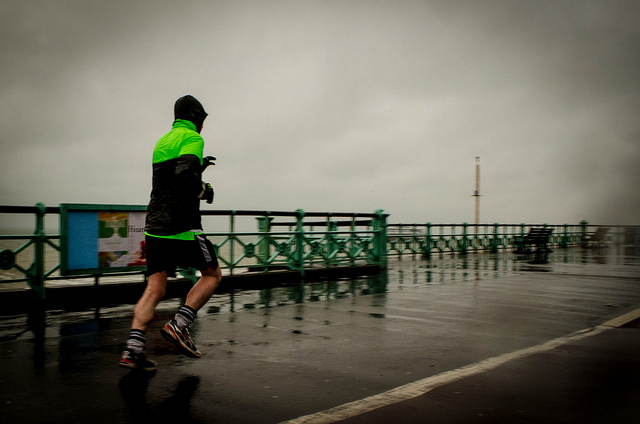Every weekend in the winter and spring, hundreds of runners hit the Boston Marathon course for long runs. Along the way, they receive an inspiring amount of support--signs, impromptu water stops, cheering crowds and even cooperative cars.
I used to envy these runners. No one waited for me with water and a high five. Sometimes, I intentionally steered clear of the packs or waited until the afternoon, when I knew they’d be gone, in order to avoid all the hubbub.
Now, though, I happily coexist with the crowds, nodding and waving as I pass them. (For whatever reason, I often run in the opposite direction that they do.) In time, I’ve learned an important lesson: I like doing long runs by myself.
I think there are two key reasons why. First, for most of my life, running has been a solitary pursuit, a way to clear my head and, sappy as it sounds, figure out what matters. Long runs give me a lot of time to weigh the pros and cons of major decisions or simply sort through whatever may be causing me stress. Casual conversations with running buddies are great, but when push comes to shove, I need Beastwood Alone Time.
Second, I’ve come to realize that training should be tough.
I understand that support gets a lot of runners through the hell of three- or four-hour workouts (especially the folks I see training for Boston run who run for a greater reason than just running, which is certainly more than I can say for myself). I’m not one of them.
I understand that support helps mimic race-day conditions. I don’t want that. I want race-day conditions to be a veritable treat in contrast. Water stops? Awesome. Random strangers cheering and holding witty inspirational signs? Fantastic. Fuel in case I forgot / dropped my own? Outstanding.
Now, I’m not stupid. I fuel up before long runs, bring water on hot runs and track workouts and stick to well-traveled roads so I’m not far from help if anything goes awry. But when it comes time to run, I’m all business. No fuel, no unnecessary water, no human contact--just pushing myself to my limit, then pushing myself even further, all while thinkin’ ‘bout stuff.
Training should be tough because it makes you tough. Training should be tough because a marathon is next to friggin’ impossible, and if your mind, body and soul aren’t as tough as overcooked steak, there’s no way you’re going to finish the damn thing. Training should be tough because your race is a culmination of months of hard work, dedication, sweat, tears, protein shakes, stretching, eating, sleeping, fretting and pain--and if you survive all that, then, by God, you can make it through one race.
Does this make me crazy? (Crazier?) Probably. But I didn’t take my running to the next level by staying in my comfort zone. Odds are you won’t either.
